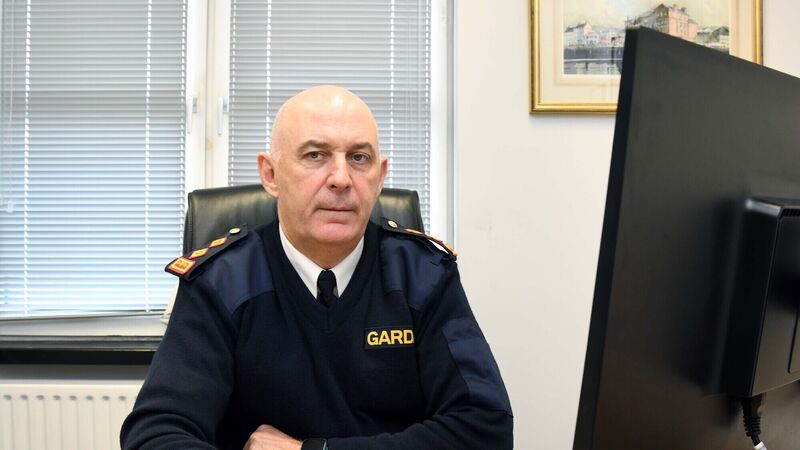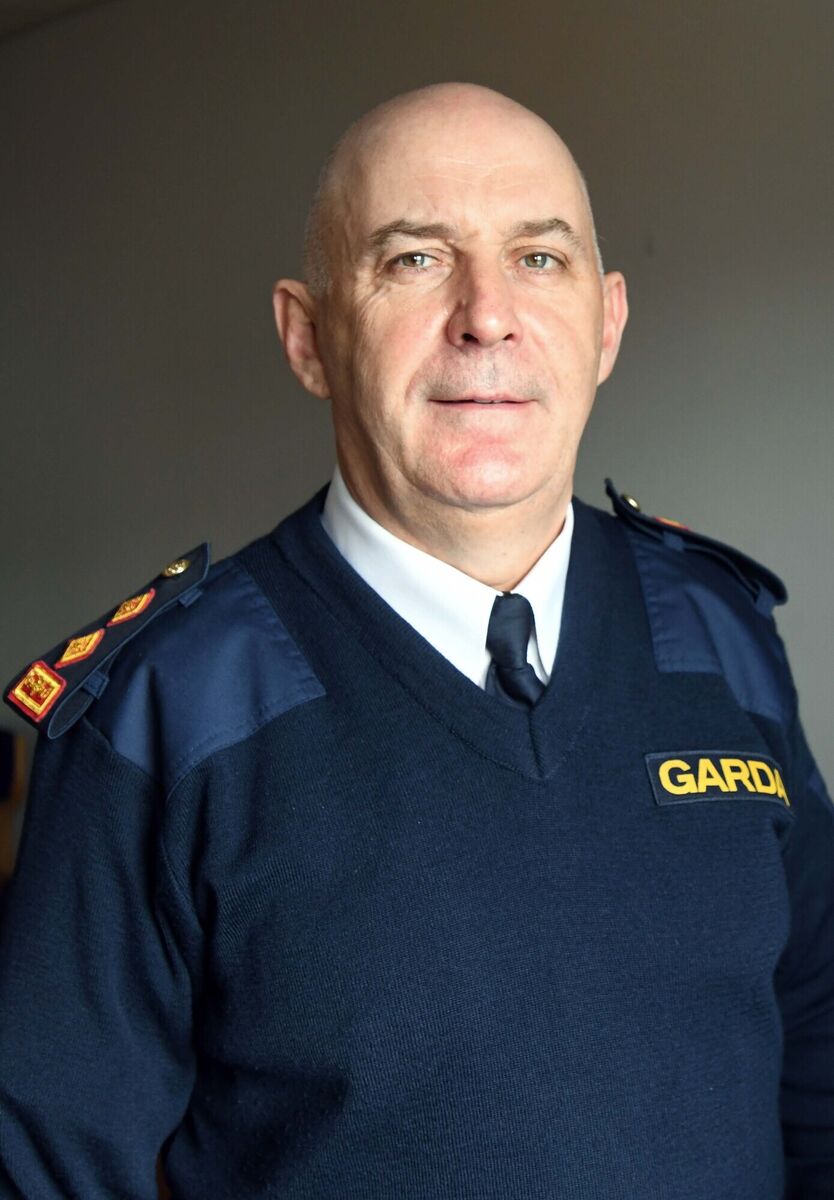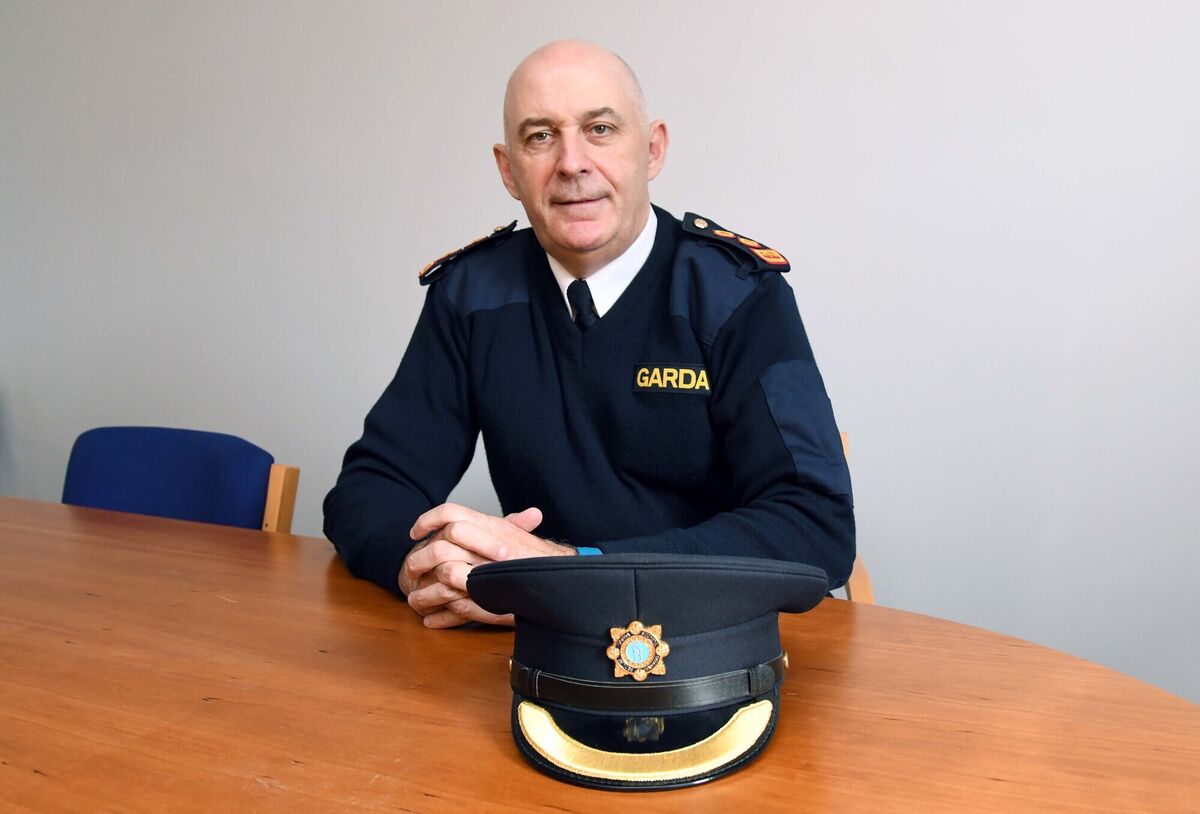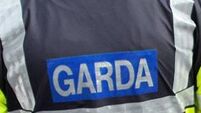'We want to get more diverse groups into An Garda Síochána': Force of change as demands increase

Garda Chief Supt. Tom Myers in Cork. Picture Denis Minihane.
“PEOPLE are more demanding of the police at the moment, they expect more out of us and they demand more, which is a good thing,” says Chief Superintendent Tom Myers as he reflects on changes within An Garda Síochána and within Irish society.
“We have an awful lot more oversight now than we ever had before.
“Many years ago, we didn’t have Gsoc [the Garda Síochána Ombudsman Commission], we didn’t have the Garda Inspectorate, we didn’t have the Policing Authority, we didn’t have the joint policing committee meetings I go to every quarter to justify what we’re doing — and these are all positive changes.”
Chief Supt Myers is the head of policing in the Cork City Garda division, and, almost four months into the job, he says he has settled into his office on the top floor of Anglesea Street Garda Station. He comes across as a personable man.
A northsider born and reared, the Cathedral Road native joined the gardaí in 1984 and was posted around the country in different ranks.
“I was here in Cork primarily,” he says.
“I spent most of my time in the drug squad. I was a superintendent in Mayfield for a while, I was a super here in Anglesea Street for a while, a chief in Kerry and a chief in Fermoy. I’ve been around the block. Generally speaking though, I was Cork based.”
He says he attended a flag-raising earlier in the day to mark the 100th anniversary of An Garda Síochána and there he reminisced about the times in which the gardaí were first set up and everything that has happened since.
“Despite all the changes in the world at the moment, we still are an unarmed police force, which is probably unique,” he says.
“Now, I know we have specialised [armed] units, but primarily you’ll find a guard unarmed out on the street — and there are not too many countries where you’ll find police unarmed — so we’re thankful of that.”

He says the force has come a long way from the officer with a baton on the side of their trousers, instead in extreme situations now using asps, a kind of extendable baton, and pepper spray.
He adds that the new Garda uniform, only the third such upgrade in a century, is set to be launched once Commissioner Drew Harris announces a “go-live” date.
He says a great positive change within An Garda Síochána is its increased female membership. It stands at approximately 30%, which is above the European average.
“And we’re not happy with that, we’re talking about getting up to 40%. We’re trying to get more and more women in, particularly at higher ranks. Many of our assistant commissioners are female, and our two deputy commissioners are female.”
He notes an increased emphasis on diversity in the force, with a national recruitment campaign focusing, in part, on minority groups.
“We want to get more and more diverse groups into the organisation. For example, we have a couple of people from Poland and South Africa and China and Lithuania here at the moment. They’re all bringing their own life experience into the organisation, which is good.”
He says it is important that members of minorities see themselves reflected back in the gardaí, something he feels will help break down barriers.
“We’ve spent a lot of time with diverse groups, particularly with the community guards, with the Traveller community, the Muslim community, the LGBT community.”
Community policing has received a lot of resources, he says, and he’s had a lot of positive feedback on the work of community gardaí, especially during the pandemic.
Specialisation is a new enough development within the force, something that brings its own advantages.
“We have armed support units, emergency response units, cyber-crime units, protective services units dealing with all sexual abuse cases, dedicated community police units, and a roads policing unit.
“Perhaps down the years, guards were ‘Jack of all trades’.
“Our training has come on leaps and bounds. When I joined the force first, we would go to Templemore for six months and that’s it, you’re out the gap. Now it’s extended over a longer period with more focus on best practice throughout the world. We have CPD classes, which is continuous professional development.”
He says computerisation and the Pulse system have changed the organisation, moving it away from its traditional paper-based approach.
“We had controversy with 999 calls and the system we have, CAD [computer-aided dispatch]. We had issues with domestic violence, but I think we’ve jumped that hurdle now and we’re a lot more proficient at IT [information technology].”
Increased numbers of civilians has been a big change in the organisation, particularly in administration staff, and the force has recently made major investments in the Garda Síochána analysis service, which, he says, analyses trends in relation to public order, drink-driving, drug activity, or antisocial behaviour.
A veteran of the drugs squad, he says Class A drugs are available in every town and village now.
“There is a lot of drugs in the city, I know that. We are quite good on the supply side, targeting drug dealers all the time. There’s not a day of the week that there’s not a significant drugs seizure in the city, and you can see that in the courts. The amount of seizures we have is incredible, but it doesn’t tell us how much stuff is out there.
“We’re trying to estimate how much drugs are out there and I don’t know if anybody can answer that question. We are an island. It’s so easy to get it in — water and air and post and people carrying drugs. Most of our drugs units work on intelligence-led operations, particularly when we’re taking out the bigger fish in that game.”
The policing of sexual assaults and child abuse material have come a long way, he says.
“We have a protective services unit here now encouraging people to come forward.
“Lots of people are coming forward with historical sexual abuse cases. We’re very sorry to see that this abuse happened but, at the same time, many people have come forward and have waived their anonymity and that has encouraged other people to come forward.
“One of the most significant changes that we’ve made in the last couple years is that we’ve become a victim-centred organisation, that the victim becomes part of everything that we do now, particularly in relation to domestic violence, and there’s new legislation coming in on harassment and coercive control, and they’re all positive things,” he says.
Chief Supt Myers says he has seen big changes on the roads, with drink-driving becoming less socially acceptable and an increase in arrests for drug-driving, the consequences of which are just as bad.

Economic crime is a big problem at the moment, he notes.
“It’s so easy to not leave your bed in a foreign country and extract money from somebody in Cork.”
He says that, generally speaking, the relationship between An Garda Síochána and the community, nationally and in Cork, is quite good.
“Policing, previously, was all about the guards. It’s not all about guards anymore. There’re so many different stakeholders that have a contribution to make.
“I was on a Zoom call this morning with a lot of stakeholders in the city centre, including Cork City Council, Cork Chamber of Commerce, and Cork Business Association, and they’re telling me what they see on the streets and I’m telling them how we can address this... I think they appreciate their role in that because they are the eyes and ears.
“We can’t have a guard on every street corner, we know that, so those people have the opportunity to feed back to us and then we analyse where we’re going.”
He cites the St Patrick’s Day festival as an example of a collaborative approach to policing:
“Because we have two back-to-back bank holidays, which is unprecedented, and it’s also going into a rugby weekend, we can anticipate people are going to be socialising, maybe Wednesday night, Thursday night, Friday night, and Saturday night into Sunday.
“We’re listening to the stakeholders and asking what do they think is going to happen, including the vintners, the nightclubs, the taxi drivers, Bus Éireann, and everybody else around the table — ‘Tell us what do you think. What do you expect? How are we going to get people home at 2am? Have we enough taxis? Do we need more buses?’ All those things.”
He says a similar approach will be taken to the university’s Rag Week.
“We work closely with a lot of the pubs and the off-licences to see how are we going to manage the situation. I don’t know what way it will go this year, but we won’t be found wanting. We will have plenty of presence up there in that area.
“There are a lot of genuine complaints from people living up around the College Road area, but I must say the vast majority of students are very well behaved and they’ll take a bit of advice or a bit of ‘cop yourself on’, but there’s always a small percentage that will tilt the balance and cause tension.”
An Garda Síochána has had several major controversies in recent years, but Chief Supt Myers feels the introduction of the Garda code of ethics has “stabilised” public concerns.
“When you look nationally at the public attitude surveys, we’re still well up there despite the difficulties we’ve had within the organisation. We’re up in the high 80s for satisfaction rates in the community. Some of the police forces around the world would chop their hands off to get half of that.
“We’re fortunate. We know some police forces very close by us have issues, we have issues ourselves, but thankfully we still appear to have the trust from the vast majority of the community. And if we don’t have that, we’re in trouble.”
He says An Garda Síochána is in some ways unrecognisable from the force he joined in 1984, which he says is a reflection of a radically changed society.
“We’ve come a long way, but policing is fickle. I could tell you today is a good day, but tonight could be a bad night.
“Things change very fast. That’s the beauty and I guess that’s the challenge of the job, trying to plan, and anticipate, and sure if we could see into the future, we’d be great.”







 App?
App?


